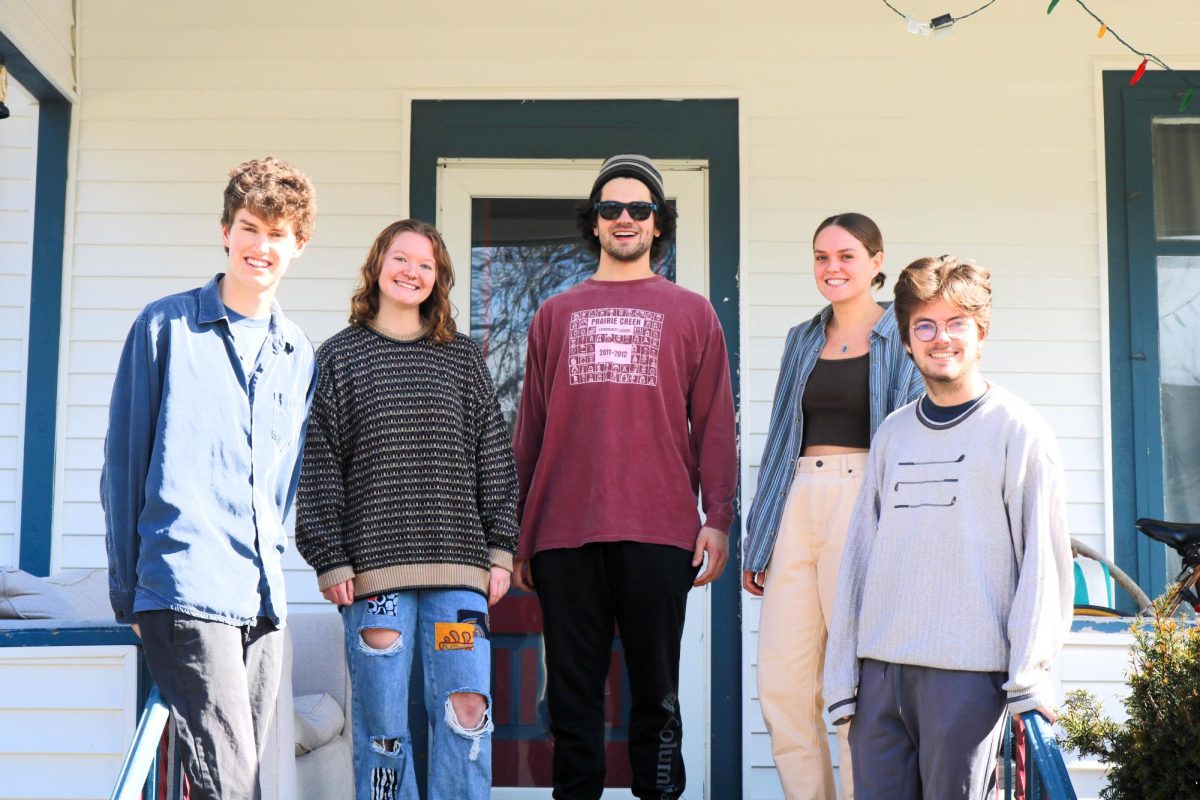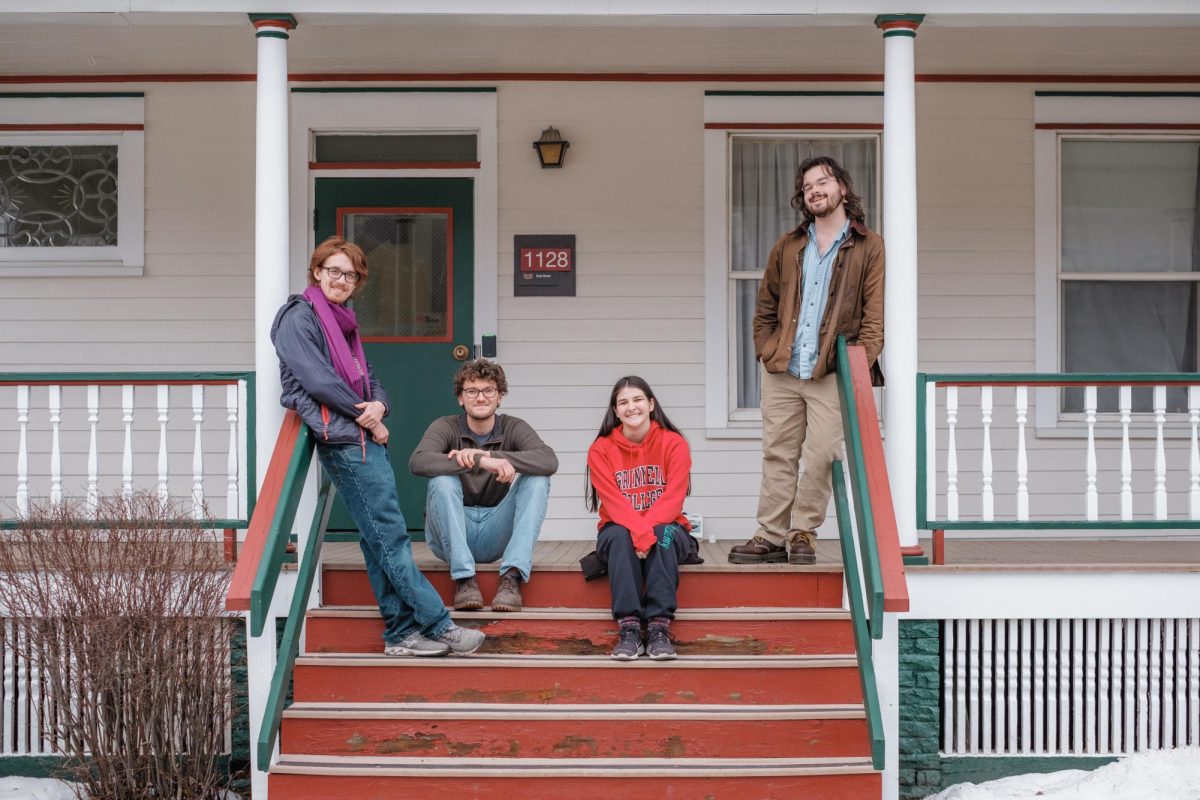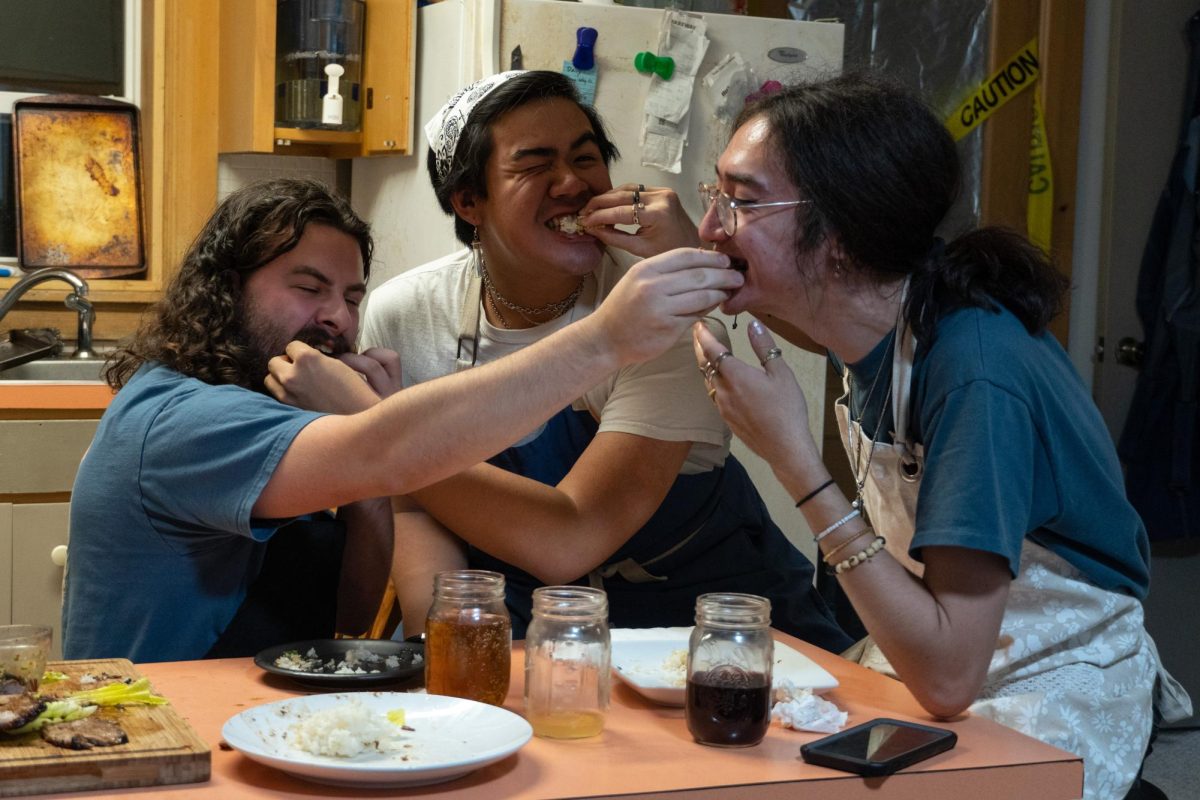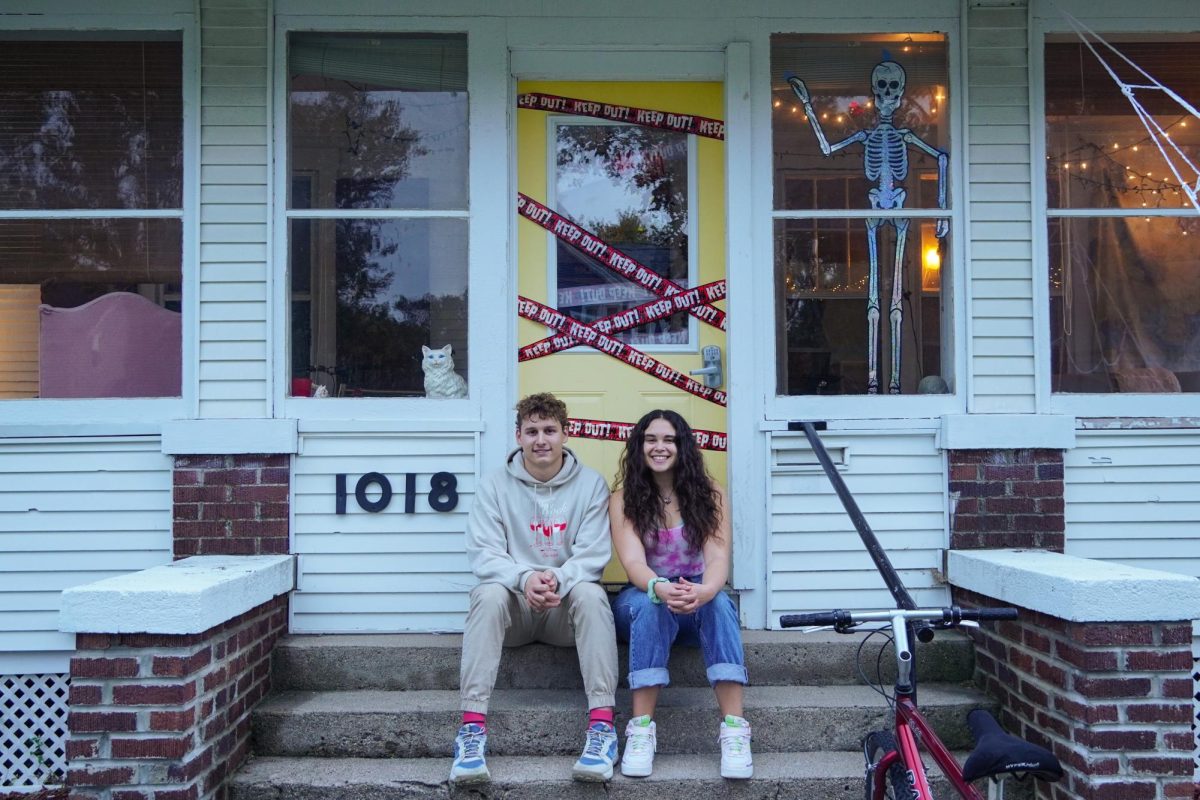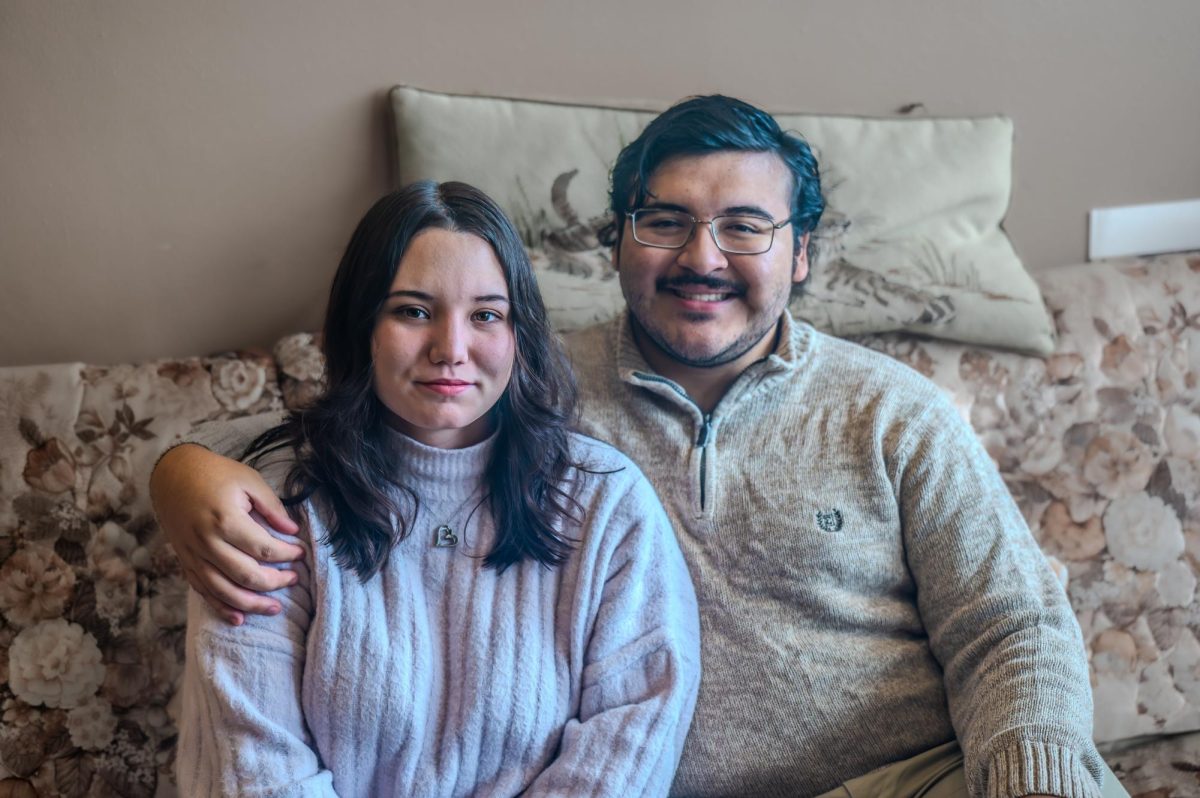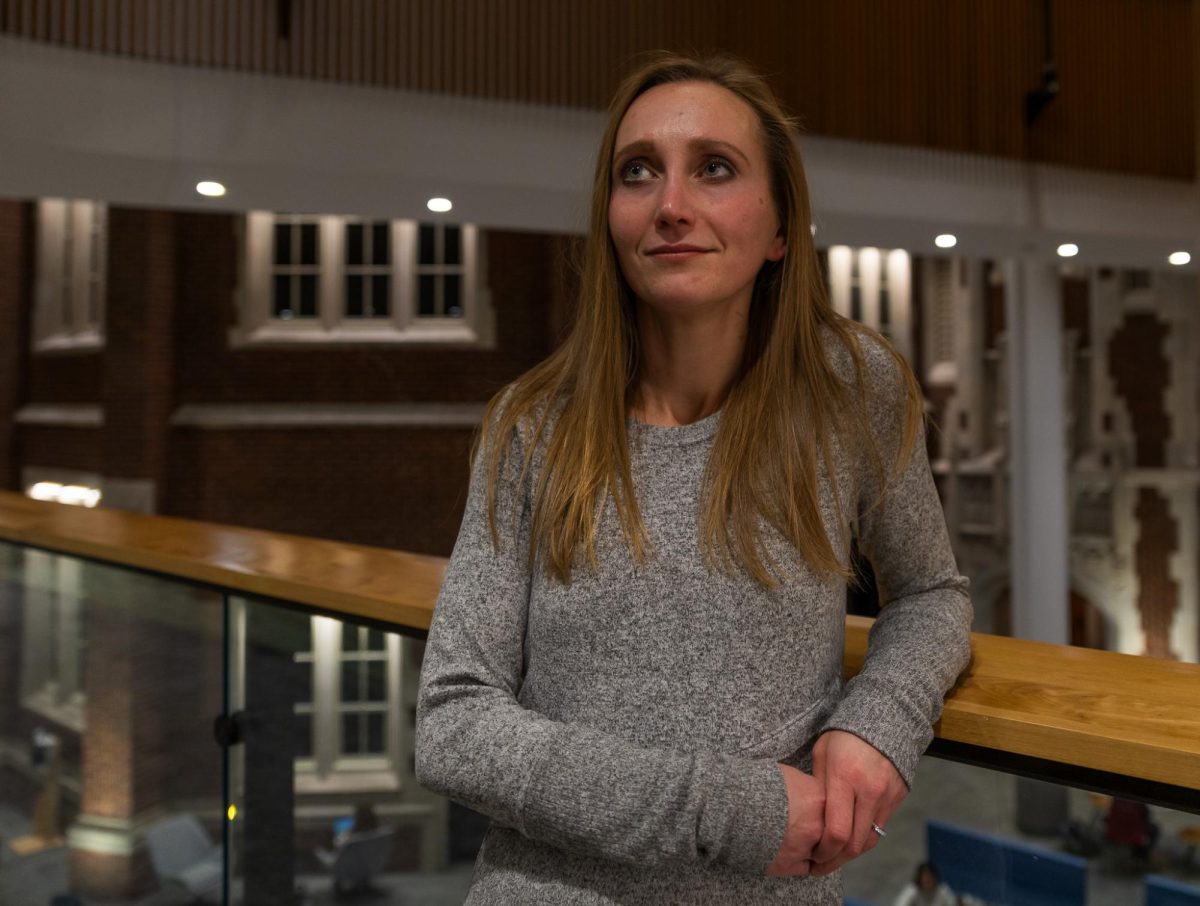While the stark, fluorescently lit hallways of Loose Pit are simply a laundry pit stop for most LooseHead residents, for Sandy Barnard, Hazel Batrezchavez, Lauren Fenton, Sophiyaa Nayar, Hanky Song and Meghna Ravishankar (all ’17) it’s home. The residents affectionately call their portion of Loose Pit “the Psych Ward” because of the eeriness of the hallway.
The group met as first-years living in Rathje and knew that they needed to continue living together. They applied for a special group draw and vowed to move closer to the main action on campus. A change of location, however, has not changed the tendencies of these friends.
“We thought it was like, we’re going from East to South [campus]. We’re going to be more social, we’re going to go out more, it’s going to be fun. But we’re more like, ‘Party in our hallway!’” Nayar said.
Another appeal of the location is the unique combination of rooms it offers. The room draw consists of a triple shared by Barnard, Nayar and Ravishankar, a double that houses Batrezchavez and Song and a single where Fenton resides.
Although her single could be lonely, Fenton’s friends have found a way to continue communicating with her at any hour of the day or night.
“My side of the room is very close to Lauren’s room, and there’s this little vent or hole in the wall that connects the end of my bed to Lauren’s bed,” Nayar said.
“The vent goes through the wall but there’s a hole … and so we talk to each other,” Fenton continued.
“I lay in bed and say, ‘Lauren, are you awake?’ and I can just whisper and she responds, ‘Yes.’ It’s so funny,” Nayar said.
Half of the group is majoring in theater and the others are interested in visual art, but despite similar interests, the group rarely finds itself together.
“We all like the same things and we all do the same things but we’re never doing the same thing at the same time so it’s really hard to see each other,” Fenton said.
“All of us are always in different parts of Bucksbaum,” Barnard explained.
The Psych Ward would be very isolated if not for the presence of the LooseHead laundry room, which attracts a lot of traffic.
“We often keep our doors open so when people are doing laundry they could stop in and say hi. It doesn’t happen, but we have our doors open so that it could happen,” Barnard joked.
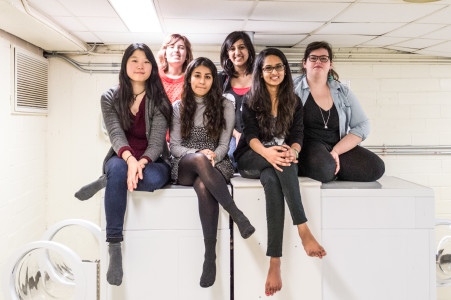
Top: Sandy Barnard, Sophiyaa Nayar, Lauren Fenton Bottom: Hanky Song, Hazel Batrezchavez, and Meghna Ravishankar (all ’17). Photo by Jun Taek Lee
While they may not get as many visitors as they would like, the group also gets a unique opportunity to eavesdrop on the residents of LooseHead.
“We respond to conversations that people are having while they pass by,” Nayar explained.
“The other day someone walked by and sneezed and … all of us just screamed, ‘Bless you!’” Ravishankar added.
The high-traffic hallway also means that LooseHead residents can view the group’s dirty laundry, which they often display in creative ways.
“The three of us spread out a little tarp and we tie-dyed underwear and bras,” Barnard said.
“And we hung up all of the stuff in the hallway,” Ravishankar continued.
“There are so many pipes in the hallway. We needed a place to hang it all up and we just put them on the pipes,” Barnard said.
Instead of being embarrassed by their neighbors’ extensive knowledge of their undergarments, the group took pride in their display.
“We left the door open so we could see people’s reactions because we were extremely pleased with ourselves,” Ravishankar said.
The project didn’t seem to be quite as popular with other LooseHead residents. The group draw suspects that they may have driven away some of the regular laundry patrons.
“Some come back, some never come back, some find a new place to do laundry,” Nayar joked.
The laundry room also brings with it its own unique scent, which this group of friends sees as an upgrade.
“It’s nice because this way we can live in Loose but it doesn’t smell like Loose. Loose always smells like cat food. I don’t know why,” Barnard said.
The proximity to the laundry room provides the group with endless entertainment, but they rarely use it for its intended purpose. The group is too preoccupied with their crazy antics to actually wash their clothes.
“I thought I was going to do more laundry,” Batrezchavez said.



















































